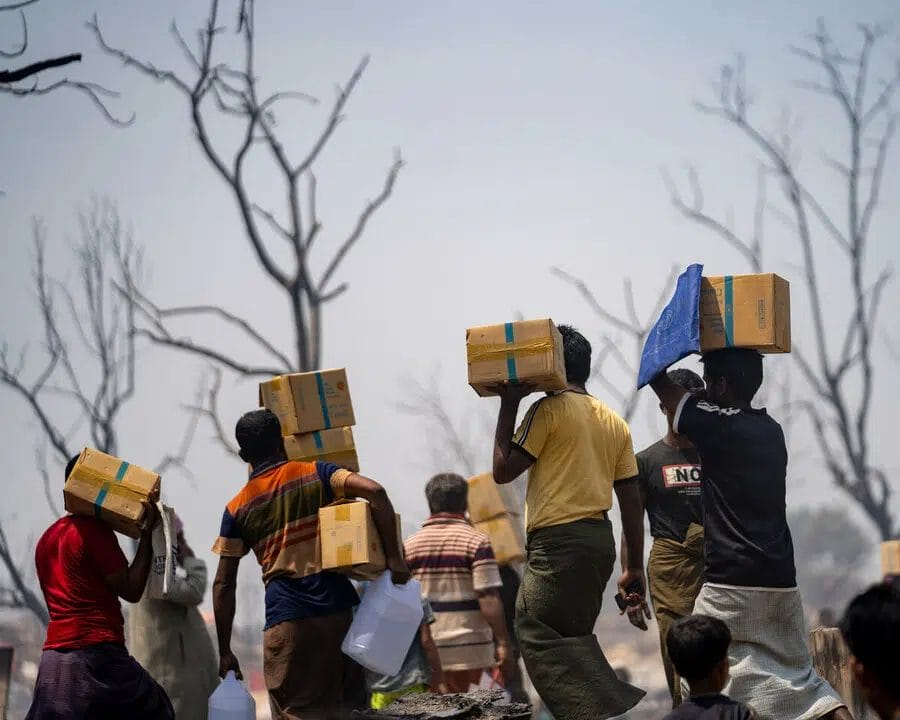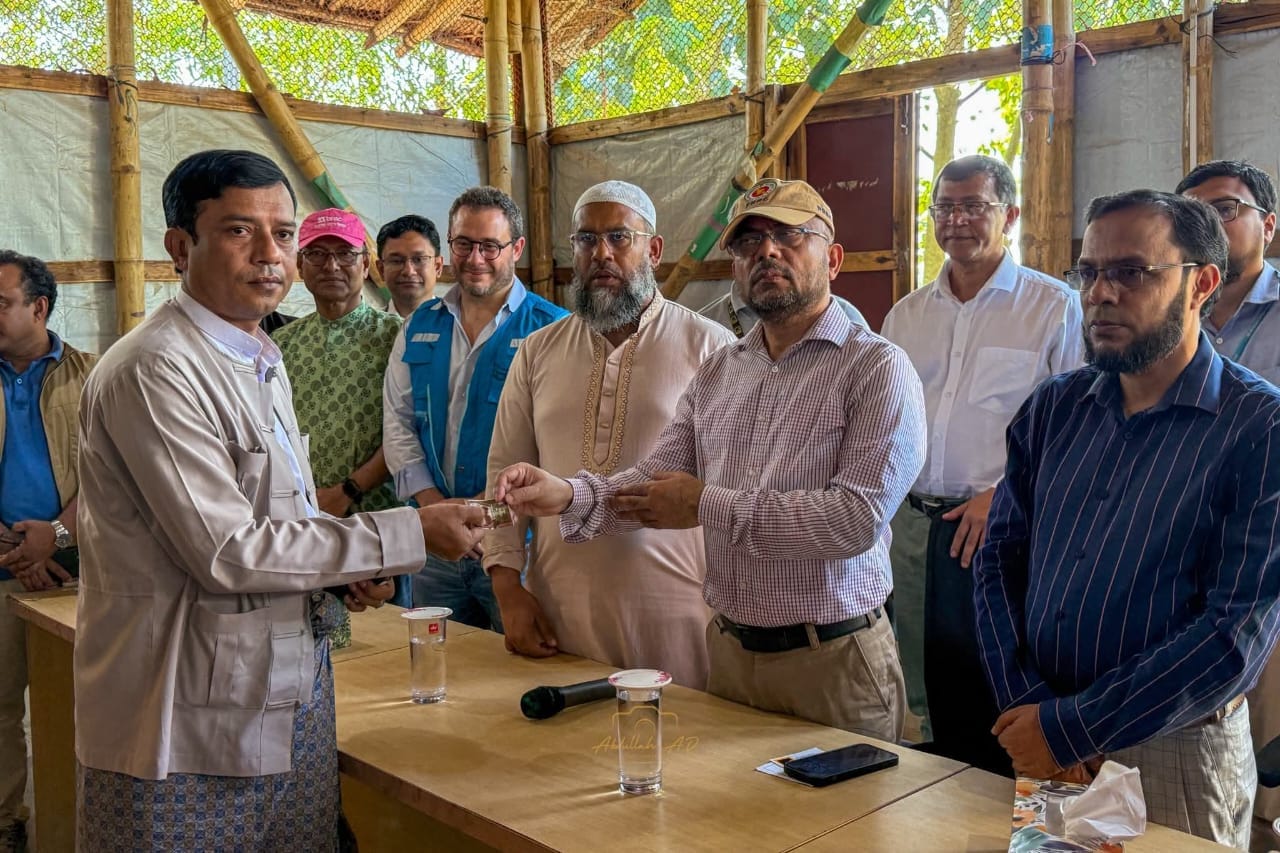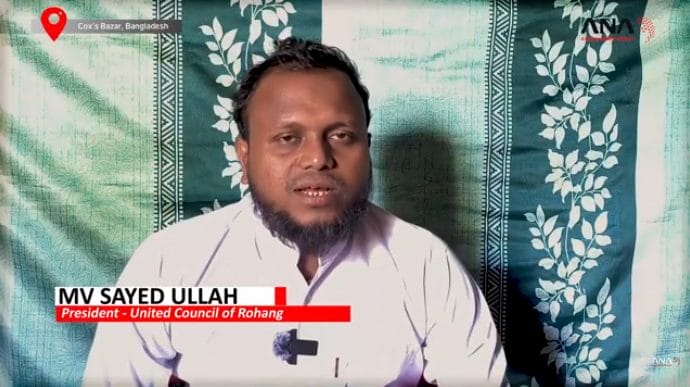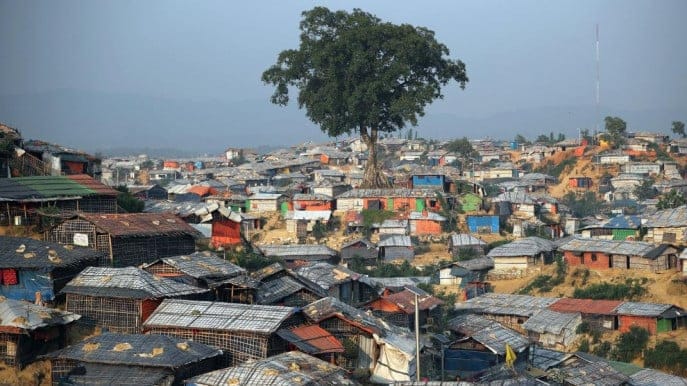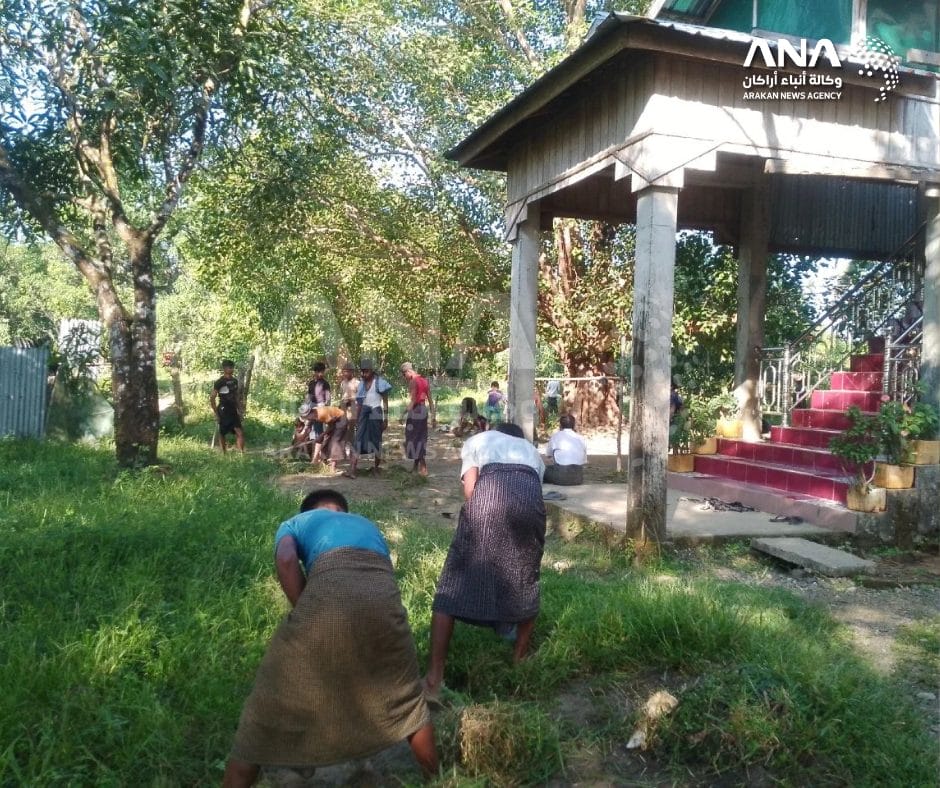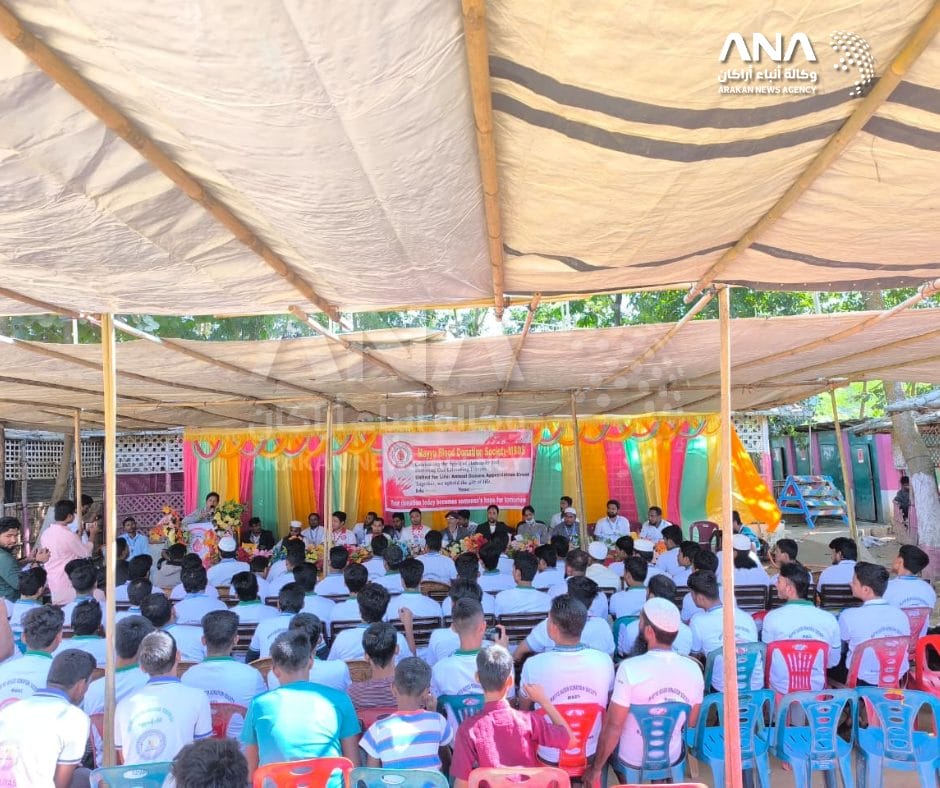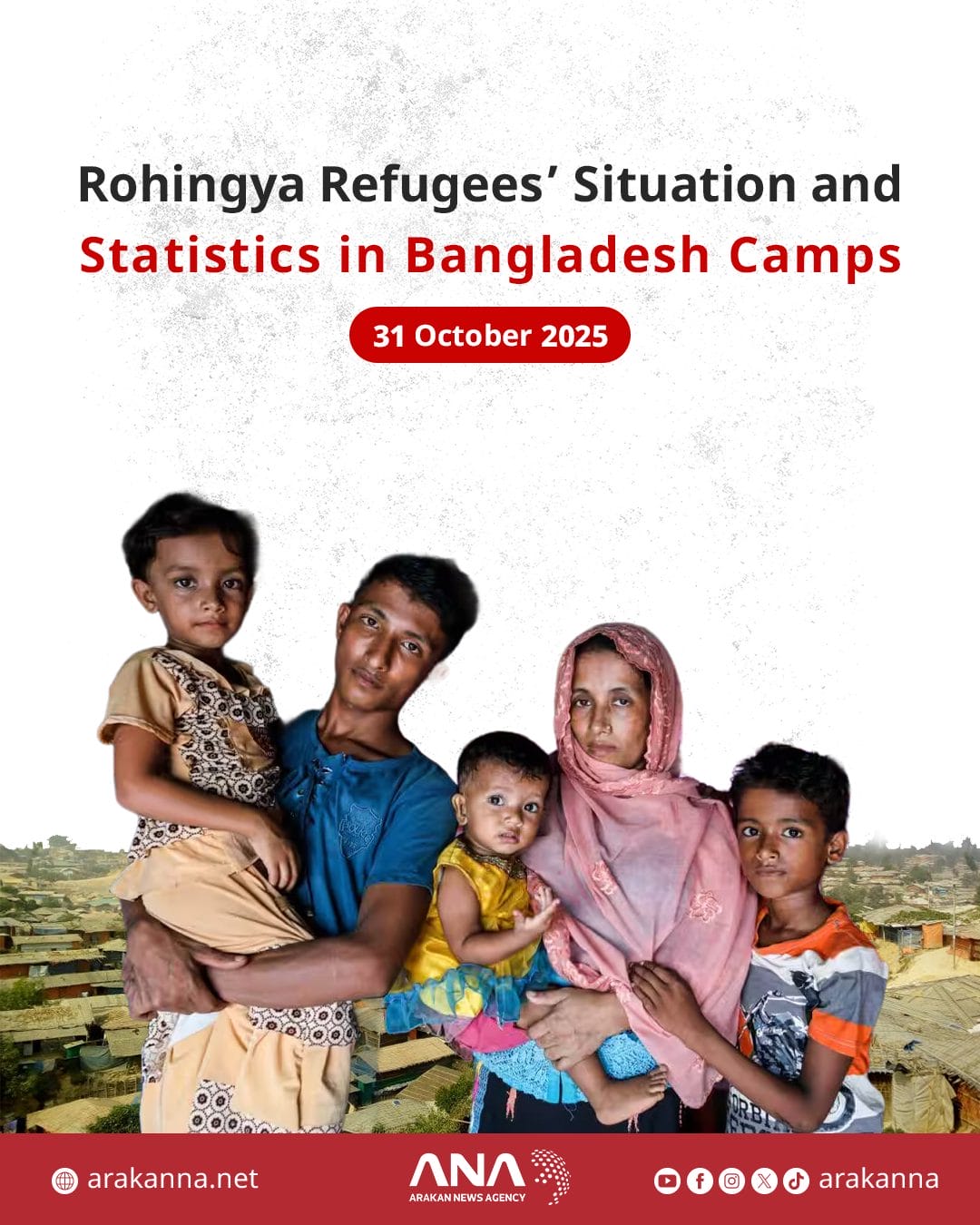Arakan News Agency
The World Food Programme (WFP), in collaboration with the Ministry of Disaster Management and Relief in Bangladesh, has announced significant changes to the food distribution system for Rohingya refugees in Cox’s Bazar camps. These changes are set to be implemented starting August 2025, aiming to improve nutritional status, reduce waste, and address the severe funding shortages.
The most notable changes include stopping individual food rations for children under six months, even if they are registered on the family data card, while focusing on promoting exclusive breastfeeding in line with global health recommendations. Mothers will continue to receive full nutritional support and necessary supplements.
The program also announced the start of fortified biscuit distributions for children, alongside general food rations, to compensate for the nutrition they were receiving from school feeding programs.
Additionally, the distribution of eggs, vegetables, and other fresh foods for children over two years of age will be halted, while children aged 24 to 59 months will still have access to these foods from fresh food corners.
Furthermore, the program has modified the fresh food voucher system, allowing only one support voucher worth three dollars per month per eligible person. Previously, some were receiving more than one voucher monthly, in a move intended to ensure fair distribution and broaden the impact of limited resources.
WFP Director in Bangladesh, “Domenico Scalpelli,” confirmed in an official statement dated July 15, 2025, that these measures are meant to maintain vital food support while improving operational efficiency, emphasizing that pregnant and lactating women will remain a top priority for malnutrition prevention and treatment services.
These decisions come at a time when humanitarian organizations face significant challenges in securing adequate funding, with over a million Rohingya refugees in Bangladesh relying on food aid for survival.
Previously, UNHCR spokeswoman “Olga Sarado” stated that around a million Rohingya refugees in Bangladesh camps face an increased risk of losing essential humanitarian assistance, amid warnings that food quantities will decrease due to an unprecedented funding crisis.
The UNHCR warned of an imminent collapse in essential services for Rohingya refugees in Bangladesh, unless urgent additional funding is provided. The UNHCR’s appeal to raise $255 million has only been 35% funded.
Financing shortages led UNICEF to announce the closure of educational facilities inside Rohingya refugee camps, starting June 3, after it decided to terminate the services of 1,200 teachers from the host community.
Bangladesh hosts over a million Rohingya refugees in the Cox’s Bazar camps, which the United Nations classifies as the largest refugee camp in the world. They fled from Myanmar following a genocide campaign launched against them by the Myanmar army in 2017, with waves of displacement increasing after renewed fighting in November 2023 between the Myanmar army and the Arakan Army, which subjected them to violence, displacement, and forced recruitment.

